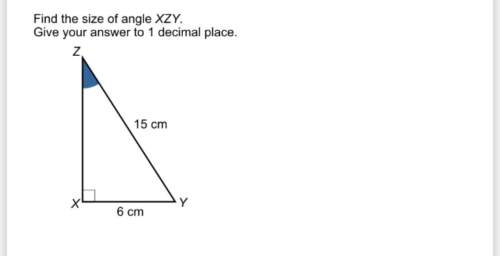
Mathematics, 16.03.2020 18:32 jacobdesalvo8155
Which best proves why the expressions 4 (x + 3) + 2 x and 6 (x + 2) must be equivalent expressions?
A. When x = 3, both expressions have a value of 30.
B. When x = 5, both expressions have a value of 42.
C. When x = 1, both expressions have a value of 18, and when x = 8, both expressions have a value of 60.
D. When x = 2, both expressions have a value of 15, and when x = 6, both expressions have a value of 39.

Answers: 1


Other questions on the subject: Mathematics

Mathematics, 21.06.2019 16:00, maddy3lizabeth
Find the amount in a continuously compounded account for the given condition. principal: $1000, annual interest rate: 4.8%, time: 2 yr
Answers: 3

Mathematics, 21.06.2019 17:00, moningersavannah
How do businesses a country's economy? a. by investing in goods and services b. by increasing the unemployment rate c. by making profits
Answers: 2


Mathematics, 21.06.2019 18:30, Prolearner1234
For each polynomial, determine the degree and write the polynomial in descending order. a. –4x^2 – 12 + 11x^4 b. 2x^5 + 14 – 3x^4 + 7x + 3x^3
Answers: 2
You know the right answer?
Which best proves why the expressions 4 (x + 3) + 2 x and 6 (x + 2) must be equivalent expressions?<...
Questions in other subjects:



History, 07.07.2019 11:00





Spanish, 07.07.2019 11:00


English, 07.07.2019 11:00






